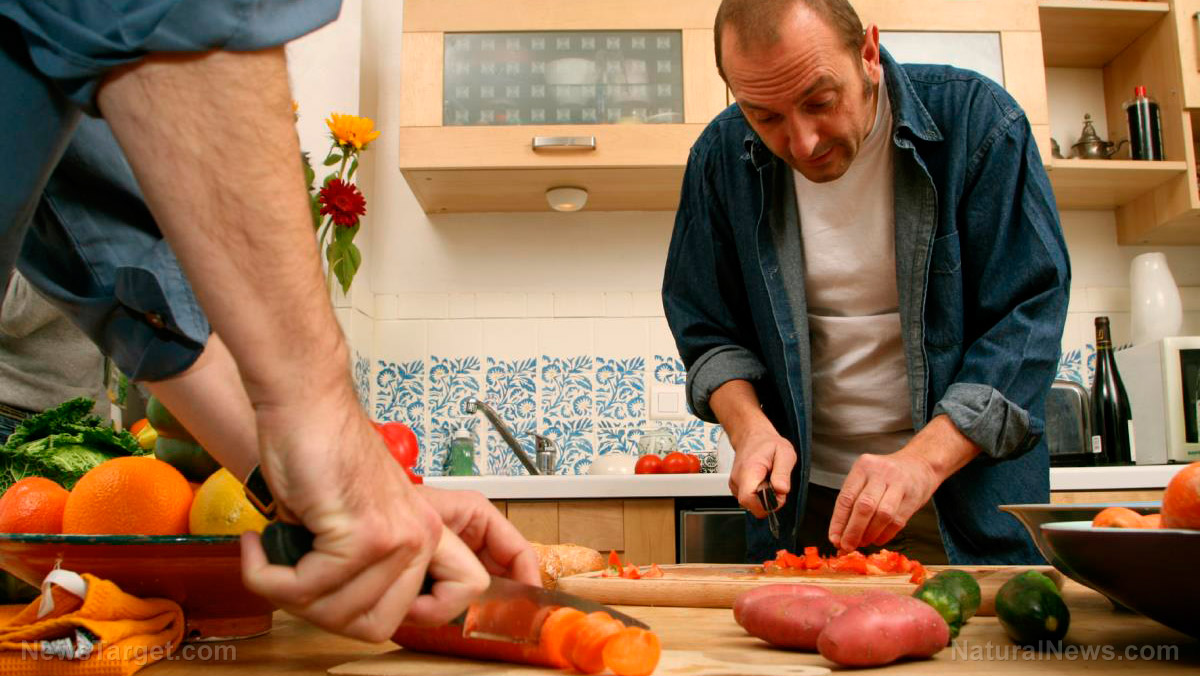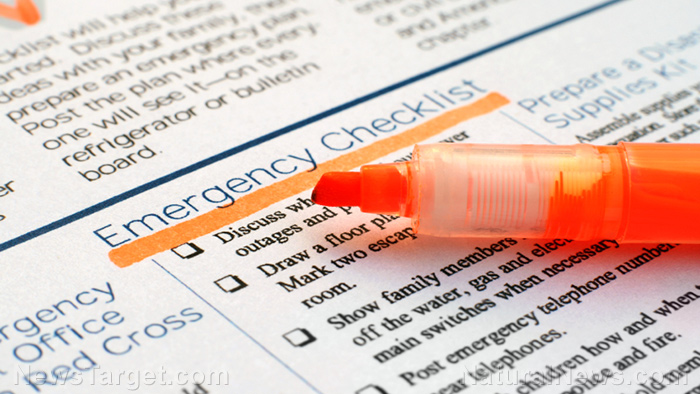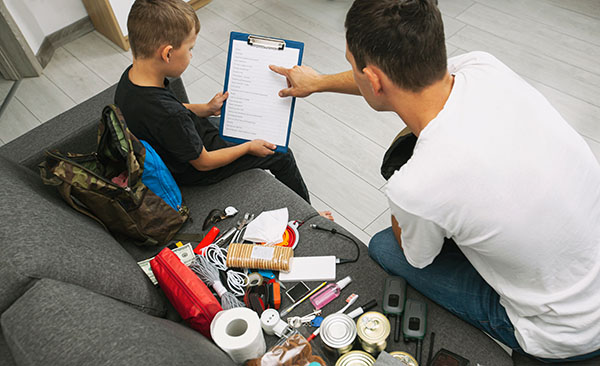
Convenience foods like TV dinners or instant mac and cheese can help reduce your prep time when cooking, but when SHTF it's more important to know how to cook from scratch.
This ensures that when you're running low on supplies, you can still cook filling dishes even if you don't have access to prepackaged meals. (h/t to TheSurvivalMom.com)
During the Wuhan coronavirus (COVID-19) pandemic, many people – especially non-preppers – struggled to put food on the table due to supply shortages across the country.
Before disaster strikes in your area, you need to learn how to prepare meals from scratch without relying on convenience foods from the store. This is an essential survival skill because if you can't cook from scratch, you would go hungry when SHTF.
Supply chain can get compromised when you least expect it
The supply chain for goods and services isn’t something you often think about, but when something goes wrong it can affect the availability of the products you use every day.
Grocery stores provide you with fresh produce, bread, meat, toilet paper, cleaning supplies and other products. If your local store doesn't have the item you need, you can just go to another.
During normal times, it's not uncommon to sometimes run out of items during sales. But the most in-demand items are almost certainly going to be restocked immediately.
Now that the supply chain is more fragile because of the pandemic, you never know when prices might increase drastically or when items might run out. Before disaster strikes, you need to understand how certain elements affect the supply chain.
Consumer panic
When non-preppers hear news about impending survival scenarios, their first instinct is to panic. If you're not prepared to deal with a disaster, you might panic and head to the nearest store to fill your pantry.
Uninformed fear like this often causes supply shortages, like when some people hoarded toilet paper during the early days of the pandemic.
Once word spread about toilet paper shortages, more panicked citizens continued to buy out store supplies instead of stocking up on other items they might need. Other items used as toiler paper substitutes continued to run out, such as napkins, baby wipes and other products.
Preppers know that when SHTF, you need to take inventory of your supplies and make a list of items you need more of before heading to the store to stock up strategically.
Just-in-time shipping
The economy relies on the ability to get goods where they're needed, when they're needed and in quantities in which they're needed. This means stores don't keep huge stocks on hand since they keep only what they think they can sell before the next shipment arrives.
The system is an effective one, but it's also vulnerable as proven by the pandemic and the ongoing supply chain crisis.
For example, when toilet paper was in demand during the pandemic, the supply was gone before the next shipment arrived. Since people bought toilet paper whenever it was restocked, it seemed like there was always a shortage of the item.
The same thing also happened with bread, which might cause panic in others. But if you know how to make bread at home using ingredients in your pantry or stockpile, you wouldn't have to worry about not being able to buy bread at the store. This is why knowing how to cook from scratch is an important survival skill.
Here are some factors impacting just-in-time shipping:
- Driver shortages – Because of the coronavirus shutdowns of training facilities, there was a gap in the pipeline of new drivers. The American Trucking Association reported that trucks deliver 72.5 percent of U.S. freight (by weight). But with the lack of drivers, deliveries were often delayed.
- Fuel shortages and price increases – Trucks with drivers but no fuel can't deliver goods. The Colonial pipeline hack demonstrates how the situation can worsen due to panic buying of fuel.
- Failing infrastructure – The I-40 bridge closure over the Mississippi River in Memphis showed how aging infrastructure can also impact distributions. Concerned officials warned that the long-term closure of river traffic could affect the nation’s supply chain. It could also affect regional deliveries. During the three-day waterway restriction, 62 vessels with 1,058 barges were delayed. Detours or delays also cost companies money, and these obstacles impact items on store shelves and item prices.
- Cyberterrorism – Hackers brought down the Colonial Pipeline, resulting in many consumers panic buying fuel and worsening the domino effect of stations running out of fuel.
Hyperinflation
Hyperinflation is worse because it refers to the "rapid, excessive and out-of-control price increases for goods and services" at a rate of 50 percent or more per month.
Inflation is a normal part of life. Unfortunately, it often affects how much your dollar can buy at the grocery store and elsewhere.
If you know how to cook from scratch, you can save money by buying one bag of flour and baking bread at home instead of buying one TV dinner.
Building your food supply on a budget
Prepare for the worst by learning how to cook from scratch.
Before prices increase, buy pantry staples like:
- Beans
- Bouillon
- Canned, frozen or freeze-dried fruits and vegetables
- Canned meat like beef, chicken, pork and tuna
- Cheese
- Cooking oil
- Flour
- Herbs
- Pasta
- Rice
- Spices
- Sugar
- Vinegar
With these versatile ingredients, you can cook different meals instead of single-entree meals that you would get from convenience foods and just-add-water meals. At the same time, cooking from scratch gives you more bang for your buck. (Related: Cooking after disaster strikes: 6 Baked bean recipes for preppers.)
If your budget is tight, stock up on supplies by shopping during grocery store sales. You can also use coupons or buy items at discount stores.
When shopping for supplies, look for affordable individual ingredients with a long shelf life. Sometimes, you may need to repackage certain foods to increase shelf life.
Doing this ensures that you don't spend too much as you build your emergency food storage pantry. Home-cooked meals are also healthier compared to fast food with lots of harmful ingredients like added sugar or preservatives.
You should brush up on your cooking skills before SHTF. When times are tough, you can rely on your food stockpile – especially if the price of food products increases due to hyperinflation.
Don't panic when you get wind of bad news about the country's supply chain. Learn to spot signs of instability, stock up on supplies when you can and always prepare for the worst.
Before SHTF, store basic ingredients and know how to cook with them. When you learn how to cook from scratch, you can ensure that your family doesn't go hungry during a survival scenario.
Sources include:
Please contact us for more information.





















